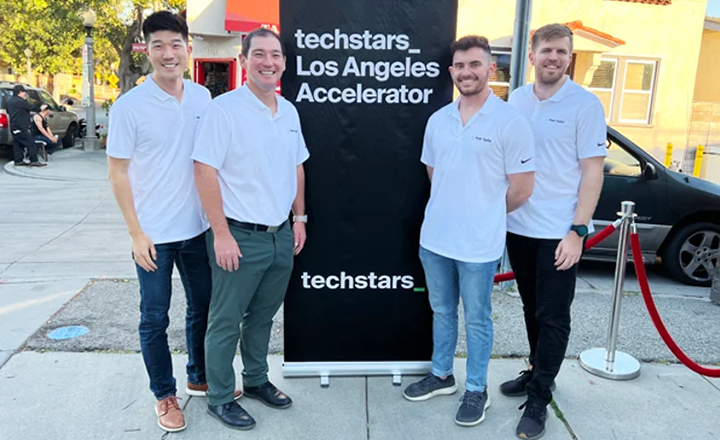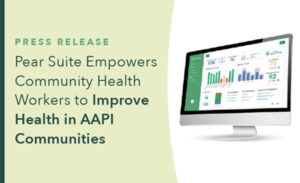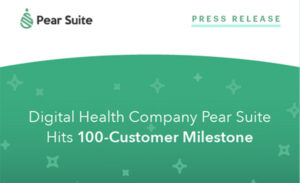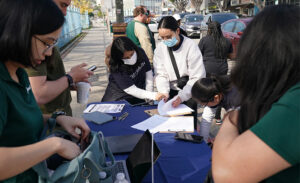By Marc Araki
Originally published on University of Hawaii News on April 13, 2022
An innovative healthcare company launched at the University of Hawaiʻi at Mānoa received a major boost from one of the country’s largest startup investors. Pear Suite, which was established by Shidler College of Business students, was named to the spring 2022 class of the Techstars Los Angeles accelerator program.
Pear Suite is one of 12 companies in the 13-week program that will receive mentoring and resources, which include a $20,000 investment from Techstars L.A., in exchange for a 6% equity stake in the company. Techstars L.A. emphasized technology in healthcare for this cohort.
According to co-founder and CEO Colby Takeda, Pear Suite is a software-as-a-service company that looks to better address the social drivers of health for older adults, which include increasing access to healthcare through transportation options, increasing the availability of healthy food, getting them connected to technology for telehealth, building strong social connections to reduce isolation, and supporting a healthy and safe home environment.
“These are all of the things that we know really drive healthy outcomes but aren’t being addressed by the current healthcare system in a comprehensive way. We have a platform that enables organizations to do that easily and keep track of their members,” Takeda said.
To date, Takeda said his team has worked with 13 healthcare organizations in Hawaiʻi, touching more than 10,000 lives. Now, the goal is to go national.
“We’d like to find organizations and companies in the continental U.S. to do pilots and bring on as customers,” Takeda said. “…For example, we would love to work with value-based care providers and health plans to demonstrate how virtual care navigators can increase access to telehealth, keep members physically active, boost annual screenings and vaccinations, and drive other healthy outcomes for older adults.”
Takeda said they also hope to find “mentors that can help connect us to the right people that can grow the business on multiple levels.”
Pear Suite’s beginnings at UH
Takeda and co-founder Justin Puckett, both graduates of UH Mānoa master’s of business administration program, tested the idea of Pear Suite through different programs, such as the Summer Startup Launchpad and Liftoff Advisors, hosted by the Pacific Asian Center for Entrepreneurship (PACE) in the Shidler College.
“We were able to work with Peter Rowan and Sandra Fujiyama to identify market opportunities and needs, and do proper customer discovery. We talked to lots of local healthcare leaders to refine the model. We rolled out some pilots and started working with our first customer to see where we might have product-market fit,” Takeda said. “The team at PACE has been so tremendous and helpful in making connections for us, getting us some funding, asking us tough questions to improve our solution and helping us secure new contracts.”
Takeda also said that Pear Suite has hired five graduates from the UH System to be a part of their team, including alumni from UH Mānoa’s public health program and an engineer from UH Maui College. In addition, Takeda has taught in the Kapiʻolani Community College Community Health Worker program, which he said is an innovative program that is training healthcare workers to address social drivers of health.
“It’s great that UH has such a broad reach and to be able to partner with different departments—both researchers and practitioners—and build a platform that allows us to use the skill set of different individuals for one shared vision is incredible,” Takeda said.
Pear Suite’s work at UH is an example of UH Mānoa’s goals of Enhancing Student Success (PDF) and Excellence in Research: Advancing the Research and Creative Work Enterprise (PDF), two of four goals identified in the 2015–25 Strategic Plan (PDF), updated in December 2020.
—By Marc Arakaki
Originally published in the University of Hawaii News




